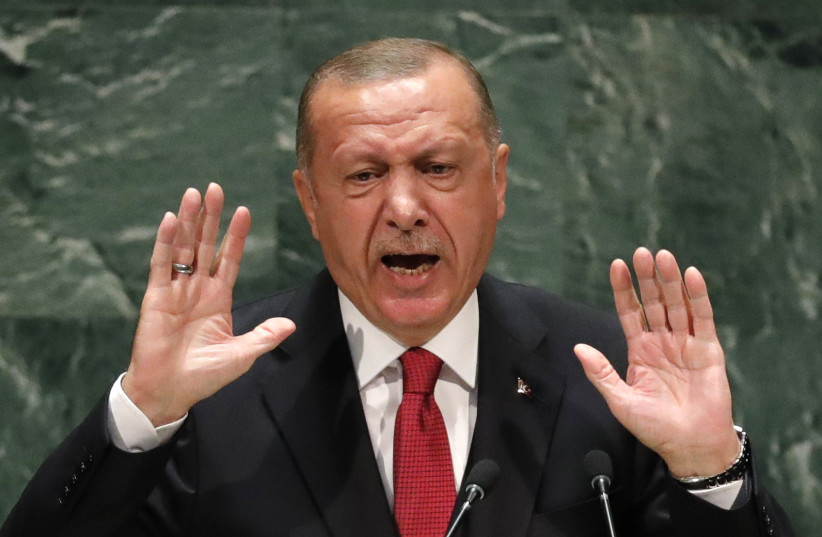In Turkey, every natural and unnatural disaster is usually accompanied by a hunt for scapegoats so that those responsible escape retribution. The major earthquakes that struck the East Anatolian Fault Zone and the aftershocks are no exception.
There have been a number of serious rail accidents in Turkey and in 2004, two years after the AKP government came to power, a new high-speed train from Ankara to Istanbul derailed, killing 36 people. However, experts had warned against launching the prestige project prematurely before the rail infrastructure had been modernized.
After a similar crash in 2018, three railway employees were detained on suspicion of negligence. As Fadi Hakura, who managed the Turkey project at Chatham House in London, commented, “The Turkish government is a big fan of mega-projects, gleaming new buildings and infrastructure expansion because those things signify progress. There is not the same focus on quality of service or proper management or maintenance.”
“The Turkish government is a big fan of mega-projects, gleaming new buildings and infrastructure expansion because those things signify progress. There is not the same focus on quality of service or proper management or maintenance.”
Fadi Hakura
He added: “Health and safety has basically gone out of the window and more construction workers are dying not because the statutes are not on the books but because the rules are not being enforced.”
Turkey's prestige projects cost lives and lack of maintenance costs even more
According to the Health and Safety Labor Watch (ISIG), last year, more than 1,843 people died in work-related accidents, mainly in the construction, agriculture and transportation sectors, and at least 30,846 people are estimated to have died since 2002. The present economic situation, where jobs are scarce, will hardly lead to more stringent work safety standards.

Mining accidents are also a common occurrence in Turkey. The worst, in Soma in 2014, cost the lives of 301 miners, who died from carbon monoxide poisoning but those responsible have not yet been held to account. There was the usual buck-passing and in October, after a similar tragedy in Amasra cost 41 lives, President Recep Tayyip Erdogan remarked, “We are people who believe in the plan of fate, these things always happen.”
“We are people who believe in the plan of fate, these things always happen.”
Recep Tayyip Erdogan
Already at the time of the Soma disaster, Turkey had long been considered a graveyard for miners and there is nothing that indicates a marked improvement in conditions.
Another prestige project, the new Istanbul airport, which was completed in 2018, cost 55 lives and together with the third Bosphorus bridge is linked with the threat of severe ecological damage. Istanbul, home to 16 million people, faces the prospect of drought, as does Turkey.
Erdogan’s dream project, which he himself has called crazy, is to build a canal running parallel with the Bosphorus Strait from the Black Sea to the Sea of Marmara.
Istanbul Mayor Ekrem Imamoglu has condemned the project as an ecological disaster but Erdogan insists on going ahead. Since the Gezi Park protests in 2013, which began as a protest against the demolition of a small park in Istanbul to build a shopping mall, there is a growing environmental consciousness in Turkey, which has led to widespread demonstrations against mass deforestation.
“Go and live in forests.”
Recep Tayyip Erdogan
MET WITH one demonstration at Ankara’s Middle East Technical University, Erdogan told the students to “Go and live in forests.”
Already in March 2014, economic analyst Jesse Colombo warned in Forbes that Turkey’s credit and the construction-driven economy was heading for an inevitable crash. Predicated on a toxic combination of ultra-low interest rates and inflows of foreign hot money, consumer spending became the main driver of Turkey’s economic growth.
At the same time, there was a property boom that led to the construction of residential buildings, malls, hotels, skyscrapers and massive infrastructure projects.
Now, with the massive devastation that has struck 10 provinces in Turkey’s southeast, Erdogan’s house of cards has collapsed. There is already a rush to find scapegoats and as well as the arrests of looters. Earthquake Crimes Investigation Bureaus have been established in the affected areas. So far, legal action has been taken against 134 suspects, including a number of contractors.
While admitting there were shortcomings in the government’s response to the quakes, Erdogan’s ire was reserved for provocateurs who conducted negative campaigns for political interest. He also promised to rebuild the earthquake-stricken areas within a year.
By way of consolation, he told a survivor, “What happened has always happened. These are things that are in the destiny plan.”
“What happened has always happened. These are things that are in the destiny plan.”
Recep Tayyip Erodgan
On the other hand, opposition leader Kemal Kilicdaroglu on his visit to the disaster zone challenged Erdogan to explain how the 88 billion lira (NIS 16.3 b.) that had been collected in earthquake taxes has been spent.
Faced with the coming elections, what Erdogan will find equally hard to explain is a video circulating on social media, where he boasted he had approved a construction amnesty for buildings in the earthquake epicenter of Karahmanmaras, in 2019. This meant they were absolved from adhering to building and earthquake regulations. In the 10 earthquake provinces, almost 295,000 buildings were included.
In 2018, the Urbanization Ministry acknowledged that half the structures in Turkey did not adhere to the relevant regulations, which does not bode well for Turkey, as other earthquakes can be expected, for example, in the North Anatolian Fault Zone.
The writer is an international adviser at the Research Institute for European and American Studies in Athens.
